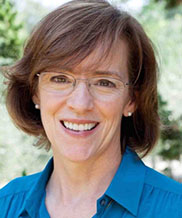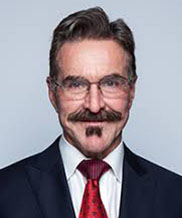Surmounting Data Barriers on Global Health Solutions

The COVID-19 pandemic has rapidly besieged a largely unprepared world, bringing unprecedented change to our social, economic and public health structures. A number of countries have responded with resilience and a largely unified sense of purpose that aims to find solutions that protect citizens’ health while restoring social and economic order as quickly as possible. At the core of strategies along each dimension of this challenge is the need for accurate population-scale testing.
Testing is a key factor in the diagnosis and treatment of the ill, and it relies on classification of those at risk and those under investigation for infection. It is vital to designate isolation and quarantine for the infected, as well as follow safe and responsible behavior before lifting restrictions and returning to work and school.
The desirable policy includes a basic formula that will support rapid sensitivity to new outbreaks, contact tracing and evaluation of emerging therapies and vaccines. In America, the question raised is: Who should be tested? Virtually every American who works or wants to work, every American on the front response lines, and every American with identifiable risk factors associated with poor outcomes will need to be tested, often more than once. Symptom management, recording, and coordination of that data with test results and other personal health data will yield the best insights.
It seems straightforward, but there are many hurdles, and I discuss the main issues of those. I also tell you about the proposed Health Threat Data Network from EP3 Foundation and Transcend Data, which is designed to permit rapid, interoperable, and secure exchange of sensitive data between testing sources, employees and other citizens, health networks, health authorities and authorized agencies. What we propose incorporates essentials like data cleansing, transformation, integration and analysis of data from disparate sources delivering critical data and insights to the decision points of care. The Health Threat Data Network assures that the privacy rights and integrity of every American’s sensitive health and employment information is preserved and protected, and that the values and preferences of individual citizens regarding the sharing of this data is honored and respected throughout. It is our aim to have this Health Threat Data Network be an enabler of creative solutions for frictionless data exchange and coordination thereby allowing all of us to safely Reboot America restoring her health, wealth and security as well as ours individually.
 Marsali Hancock is the CEO of EP3 Foundation, a neutral nonprofit that unlocks data silos allowing access to data needed while protecting sensitive, personal health information and confidentiality. She also serves as a commissioner for the Global Information Infrastructure Commission, the oldest internet policy organization where she works with nation-state leaders to build robust communication networks companioned with proactive online safety and security initiatives. Previously, Marsali developed the first Federal Trade Commission (FTC) approved COPPA safe harbor providing state and federal education law certifications. Marsali is also deeply involved nationally and internationally in measuring and defining positive digital cultures, responsible regulatory frameworks, data privacy, data compliance, and effective education initiatives that both empower and protect consumers.
Marsali Hancock is the CEO of EP3 Foundation, a neutral nonprofit that unlocks data silos allowing access to data needed while protecting sensitive, personal health information and confidentiality. She also serves as a commissioner for the Global Information Infrastructure Commission, the oldest internet policy organization where she works with nation-state leaders to build robust communication networks companioned with proactive online safety and security initiatives. Previously, Marsali developed the first Federal Trade Commission (FTC) approved COPPA safe harbor providing state and federal education law certifications. Marsali is also deeply involved nationally and internationally in measuring and defining positive digital cultures, responsible regulatory frameworks, data privacy, data compliance, and effective education initiatives that both empower and protect consumers.
 John C. (Jack) Lewin, MD is Principal and Founder of Lewin and Associates LLC of New York City, and is also Chairman of the National Coalition on Health (NCHC) of Washington DC. Lewin and Associates is a consulting organization focused on launching health start-up companies and also on developing policy and advocacy positions for health sector companies and government. The NCHC is a highly respected national advocacy organization in Washington DC representing 90+ national health sector organizations with collectively over 150 million members. He is also Chairman of the EP3 Foundation (San Francisco, CA).
John C. (Jack) Lewin, MD is Principal and Founder of Lewin and Associates LLC of New York City, and is also Chairman of the National Coalition on Health (NCHC) of Washington DC. Lewin and Associates is a consulting organization focused on launching health start-up companies and also on developing policy and advocacy positions for health sector companies and government. The NCHC is a highly respected national advocacy organization in Washington DC representing 90+ national health sector organizations with collectively over 150 million members. He is also Chairman of the EP3 Foundation (San Francisco, CA).